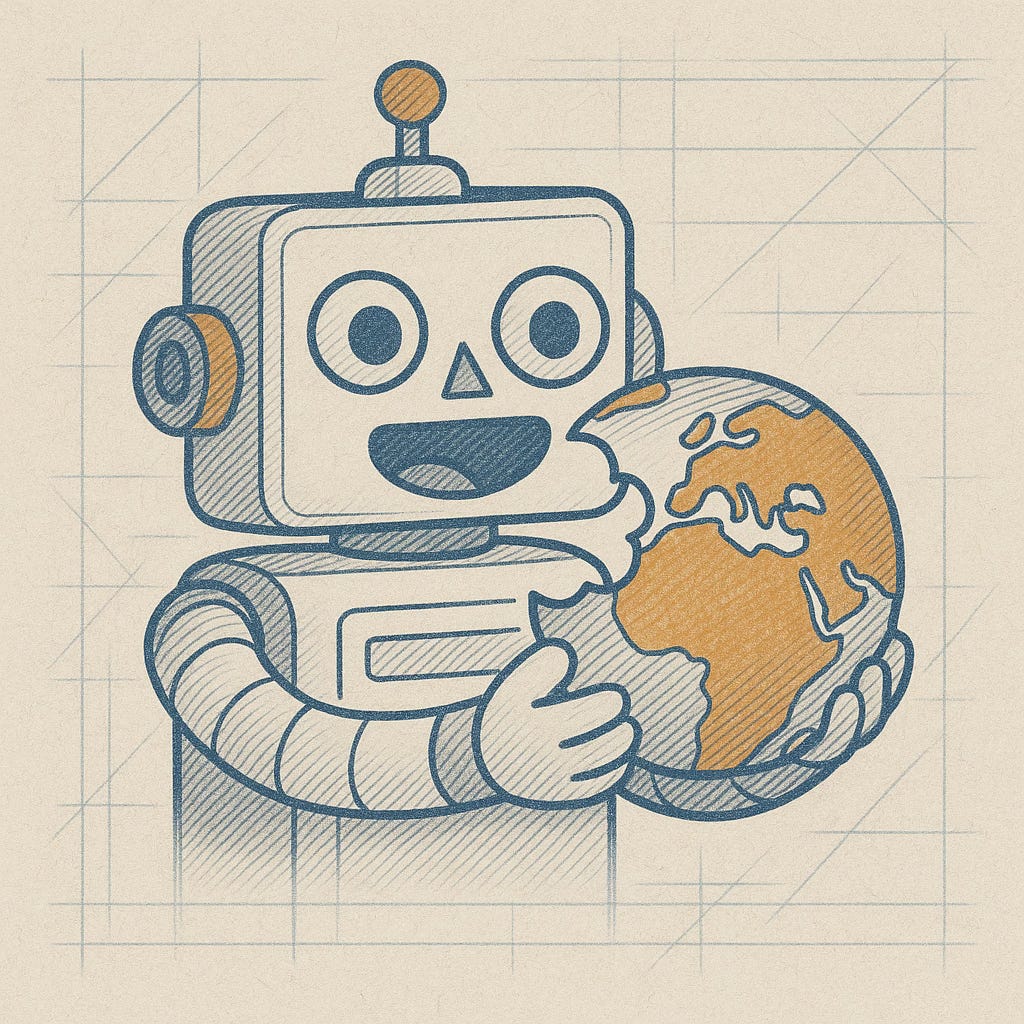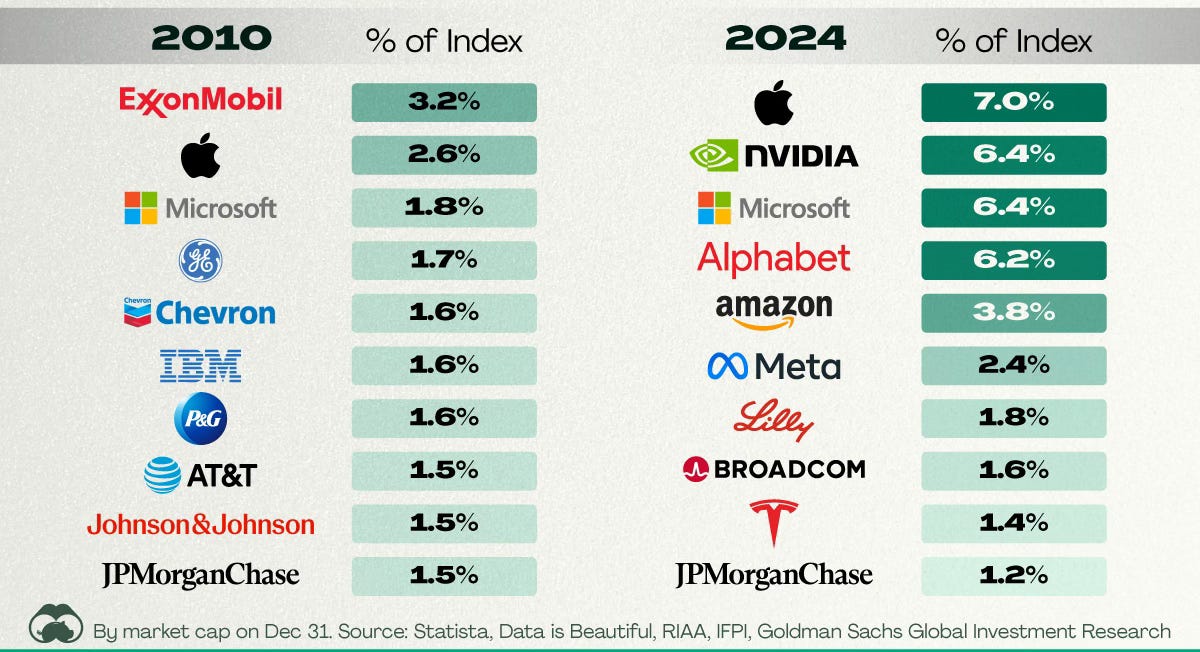AI's Guaranteed Revolution
What Happens When Writing Good Code Is No Longer A Bottleneck?
“Recursive self-improvement” is the big dream that all the AI labs are working towards. If we can get the models to improve themselves, then we’ve hit the inflection point. We achieve take-off and the only limit to our progress will be the electricity needed to power the GPUs.
It’s not quite clear what it will take to get there, how near or far we might be to it, or even if models will only self improve “a bit” before we need to intervene again. Today’s models can write code incredibly well, but they aren’t themselves coded, they’re trained. Can their coding abilities translate into training abilities? Time will tell.
All eyes are so firmly on the prize of recursive self-improvement that we risk overlooking an achievement that is already almost guaranteed to unlock significant productivity growth - Today’s models can write code incredibly well.
If you haven’t had the chance to play around with Claude Code I would highly recommend it. (Seriously - give Lovable or V0 a spin this weekend). It is utterly astonishing. The leapfrogs in capability with each new release are breathtaking and, even though there are a few vibe coding horror stories, most sensible people are making great use of it.
Adoption has been strong amongst the most technically capable. Gumroad, for example, says that 41% of all their code commits were performed by AI agents in April, a figure which isn’t out of the the ordinary in tech companies. This will very rapidly expand beyond the Silicon Valley companies.
Software Has Eaten Half The World
In 2011 Marc Andreessen said that software was eating the world:
Six decades into the computer revolution, four decades since the invention of the microprocessor, and two decades into the rise of the modern Internet, all of the technology required to transform industries through software finally works and can be widely delivered at global scale.
he went on to predict that
in many industries, new software ideas will result in the rise of new Silicon Valley-style start-ups that invade existing industries with impunity. Over the next 10 years, the battles between incumbents and software-powered insurgents will be epic. Joseph Schumpeter, the economist who coined the term “creative destruction,” would be proud.
And he was right! Just look at how much the S&P 500 is now dominated by software companies:
Software has been eating the world. The rapid part of the story has been software-first companies emerging and coming to dominate legacy industries (advertising, media, recruiting, retail etc).
The slow part of the story has been the proliferation of software through existing companies, legacy industries and especially domestic SMEs. The productivity gains from automating processes here are slower coming.
It hasn’t been without effort. Colleges teach courses in “Digital transformation”, consultancy firms sell it and governments fund it.
One key challenge has been the number of software engineers needed to write all of the code required. Our universities have been producing coders, but they have mostly been gobbled up by all the tech companies. The challenge has been so acute for so long that back in 2020 I was arguing that we should lower the bar for what we need. Sure we need Computer Scientists who could architect full systems, but also Software Engineers who could write some simple automation scripts:
As software becomes an integral part of every industry there will be an increasing number of job opportunities that shouldn’t need someone to do a 4 year computer science degree to write or fix a bit of code.
Earlier again still, in 2017 Wired Magazine ran an aspirational piece about the coding as a “blue collar” job:
These sorts of coders won’t have the deep knowledge to craft wild new algorithms for flash trading or neural networks. Why would they need to? That level of expertise is rarely necessary at a job. But any blue-collar coder will be plenty qualified to sling JavaScript for their local bank.
Infinite Coding Graduates
Coding Models and AI agents can now deliver this dream.
They will let all companies ask and answer the question - what if you could hire 20 computer programmers for the price of 1?
Every SME who want’s to overhaul and automate their legacy invoicing or stocktaking or accounting flows won’t need a 10 person tech team to write code, they can just hire one to plan and manage the agents. The company can probably even pay a competitive enough salary to get someone great.
If you don’t believe me that this will be a huge productivity boost, you haven’t spent enough time in the world of enterprise software. There are so many 24 year olds whose Monday mornings start with something like “Log into the dashboard and export a CSV. Open it in excel and rename some of the headers. Upload to the new system and run the report. Export the PDF and put the pages into Powerpoint on the Sharepoint. Email it to the team.”
This trend is also very likely to benefit smart employees in these industries before it benefits the companies. I imagine that the next 2-5 years will see lots of stories about people automating their 8 hours of work down to 30 minutes with the help of AI. This has traditionally been the trick of a few folks with good technical abilities, but I think it will spread wider now, especially given survey results like this one from KPMG that found “Almost one in two employees who use AI admit to doing so in ways that contravene organizational policies and guidelines” and 57% say they use it but don’t tell their boss.
When Writing Software Is No Longer A Bottleneck
Marc Andressen wrote his original essay because the cost of hosting and running software had just fallen 100x since the decade prior. This led to the explosion he predicted.
We are now about to enter a decade where the cost of writing software will drop by similar orders of magnitude.
The effects are going to manifest in all sorts of unexpected ways. Take for example, this week’s announcement from Amazon about “Transform” - an agent that will re-write your enterprise's old (.net) windows code so that you can migrate it to the cloud. They offer it for free.
Agentic AI as 'automated white-glove onboarding' to decimate switching costs isn't a use case I had considered before I read this. What a big win for market efficiency!
When I was 16 I was making pocket money by making websites for local businesses. I’m sure there will soon be 16 years olds writing software and automating processes for the local hair dresser, accountant or lawyer.
So while we eagerly watch the labs for signs of recursive self improvement in ML, we can get busy helping software eat the last of the world.





i would argue writing good code is not a productivity boost but an efficiency boost. and this is all great to the point that tokens are getting restricted/throttled and more expensive every few days now. how long till we pass the threshold that the efficiency boost doesnt worth the cost? the management may approve extra spend for productivity increases but when it comes down to efficiency boost, not so much.